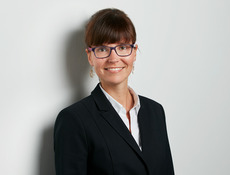When it comes to digital transformation, the European consensus is most clear on what it doesn’t want: the radical capitalism of the United States or a surveillance state like that of China. Instead, the EU has set itself the goal of making artificial intelligence human-centered and trustworthy. Articulating this rather broad objective is undoubtedly an important first step. However, a closer look at the digital policy measures it has generated reveal an EU that is more reactive than proactive and thus always one step behind the rest. While European policymakers and civil society leaders focus on finding and fixing problems along the way, tech companies are engineering at high speed their version of the future.
Europe’s approach to human-centric digital transformation lacks concrete visions for societal change
The private sector has long understood that visionary thinking in an organization increases the collective ability to make coherent and strategic decisions. By articulating their vision of the future, organizations help motivate and orient the people within them. Pushing the boundaries of what’s possible, digitalization can be leveraged to develop such visions. However, digitalization must always be understood as a tool, not a mean in itself. It is the social issues that must be at the center of discussion.

Kenrick Mills / Unsplash License, https://unsplash.com/license
“The New New:” Launch of a new fellowship for the development of just and inclusive digital futures
Now, more than ever, we need to ask ourselves: What visions for the future should guide our lives today? What role should digital innovation play in these visions? How can we ensure that algorithms, artificial intelligence and other technologies foster inclusion, diversity and cohesion? “The New New” fellowship, a six-month stipend offered by the Bertelsmann Stiftung and Superrr Lab, provides individuals and teams from across Europe the opportunity to explore what visionary, just and inclusive digital futures might look like. Apply now (until January 6th 2021)!
For Europe to leave behind its reactive digital policy making, we need positive visions for societal change! Technology can help us because it pushes the boundaries of what is possible. However, it should always be seen as a tool, not an end to itself.
Carla Hustedt, Project Lead Ethics of Algorithms
The Bertelsmann Stiftung, together with the non-profit Superrr Lab, is therefore launching an EU-wide fellowship program – The New New– which is aimed at developing inclusive digital visions of the future. Individuals across Europe who are working on artistic projects, stories, concepts or digital tools to explore such visions are invited to apply for a six-month stipend (Deadline: January 6, 2021). We are looking for teams or individuals envisioning futures in which new technologies improve all lives and foster equity in society. The fellowship program seeks to broaden public debate on digitalization by bringing perspectives from civil society to a discourse driven primarily by the private sector. We want to show that better digital futures are possible and explore the means of achieving them. You will find more information on how to apply here.
Designed to nurture discussion and thought experiments, The New New program does not aim to find quick fixes to the problems we face, nor does it aim to create a silver bullet. Instead, we believe processes are as important as outcomes.
We must transform the discourse of technology into a discourse of society: Instead of designing solutions before we understand the problem, we should focus on the challenges of the present, people's needs and positive visions of the future.
Elisa Lindinger, Co-Founder and Managing Director Superrr Lab
A plurality of narratives for a fairer world
The tech sector notably lacks diversity, which means that the views and needs of many in society are not taken into account. Digital technologies are used in ways that benefit certain parts of the population and discriminate against already marginalized groups, thus deepening inequalities.
Our “New advisory board” helps us to design the fellowship program in a more inclusive manner by sharing their diverse perspectives and asking critical questions. The member of the advisory board are: Fieke Jansen, PhD at Data Justice Lab od the Cardiff University, Joana Varon, Founder-Directress of Coding Rights, Joy Asongazoh Alemazung, Ambassador at #HeForShe UN Women Germany, Lorena Jaume-Palasi, Founder of the Ethical Tech Society, Nushin Yazdani, dgtl fmnsm & Design Justice Network, Olivia Vereha, Co-Founder of Code for Romania, Raúl Krauthausen, activist for inclusion and accessibility and Founder of Sozialhelden e. V., Stephen Cave, executive Director of the Leverhulme Centre for the Future of Intelligence of the University of Cambridge
There is a lack of visions for digitization. Not because there are none, but because there is a lack of targeted exchange - for example between decision-makers, civil society actors and the arts.
Julia Kloiber, Co-Founder and Managing Director Superrr Lab
We explicitly encourage applications by individuals who belong to groups that are underrepresented in tech debates (e.g., minorities across race, class, physical ability and gender). Diversity promotes innovation precisely because looking through the prism of different perspectives allows us to create something truly new.
The most important things you need to know:
What kind of projects are supported through the fellowship?
All kinds of artistic projects, stories, concepts or digital tools that are envisioning futures in which digital technologies improve all lives and foster equity in society.
What kind of support does the fellowship offer?
Each New Fellow will receive a stipend of approximately €6,000. The stipend will support the fellow in working on their projects and artworks. to give them the freedom they need to push their project further. Each fellow will also get access to tailored coaching and mentoring.
How do I apply to the fellowship?
You can apply until January 6th 2021 through the Website of The New New. You won’t need to provide us with a comprehensive project proposal or budget plan, but only answer some questions on your vision and project. The application is in English, but you can use translation programs and inform us, if you are not a native speaker. We do not expect applications in perfectly polished English.
You can find more information about the application at the FAQs on our website.



